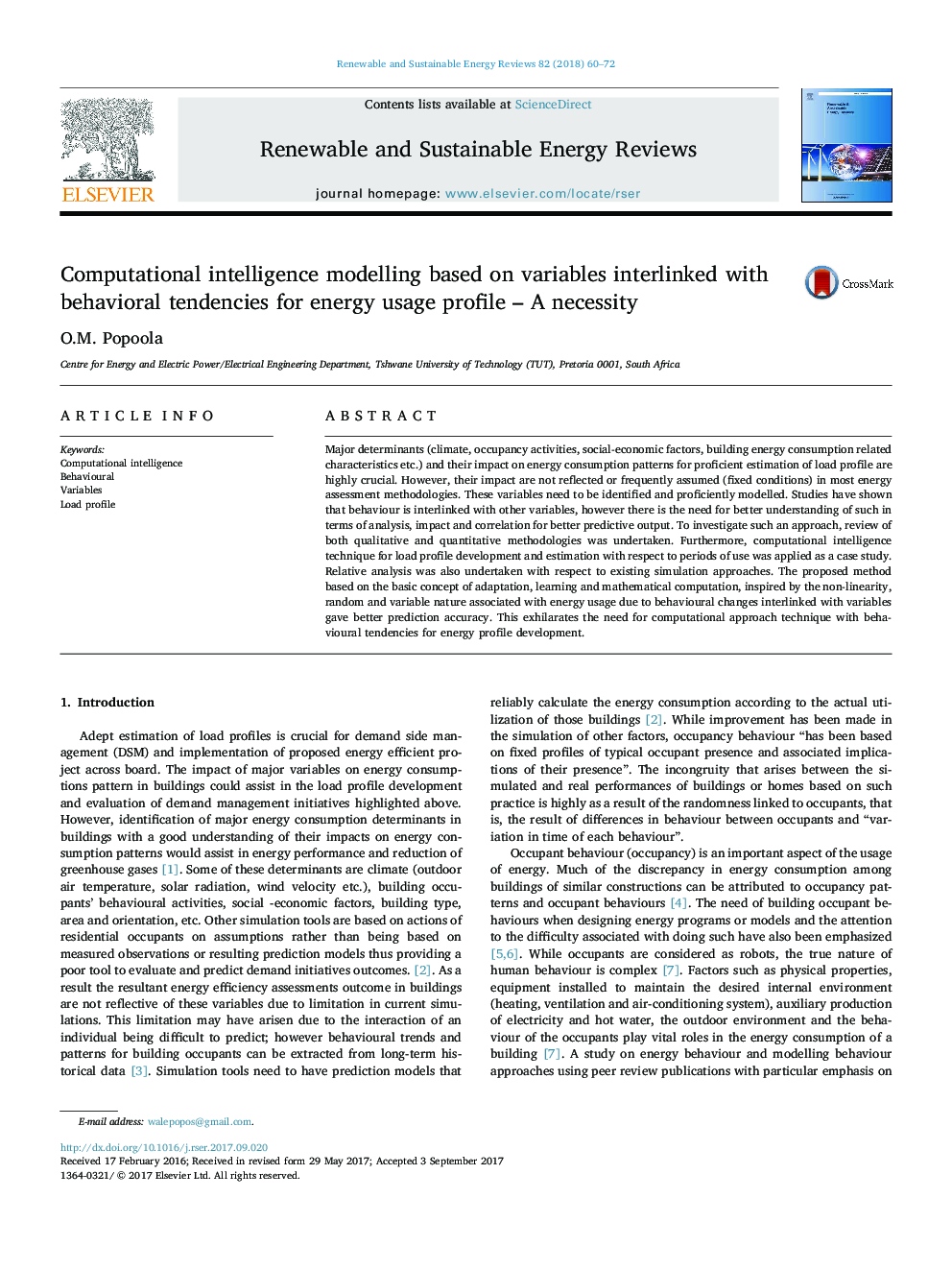| Article ID | Journal | Published Year | Pages | File Type |
|---|---|---|---|---|
| 5481852 | Renewable and Sustainable Energy Reviews | 2018 | 13 Pages |
Abstract
Major determinants (climate, occupancy activities, social-economic factors, building energy consumption related characteristics etc.) and their impact on energy consumption patterns for proficient estimation of load profile are highly crucial. However, their impact are not reflected or frequently assumed (fixed conditions) in most energy assessment methodologies. These variables need to be identified and proficiently modelled. Studies have shown that behaviour is interlinked with other variables, however there is the need for better understanding of such in terms of analysis, impact and correlation for better predictive output. To investigate such an approach, review of both qualitative and quantitative methodologies was undertaken. Furthermore, computational intelligence technique for load profile development and estimation with respect to periods of use was applied as a case study. Relative analysis was also undertaken with respect to existing simulation approaches. The proposed method based on the basic concept of adaptation, learning and mathematical computation, inspired by the non-linearity, random and variable nature associated with energy usage due to behavioural changes interlinked with variables gave better prediction accuracy. This exhilarates the need for computational approach technique with behavioural tendencies for energy profile development.
Related Topics
Physical Sciences and Engineering
Energy
Renewable Energy, Sustainability and the Environment
Authors
O.M. Popoola,
